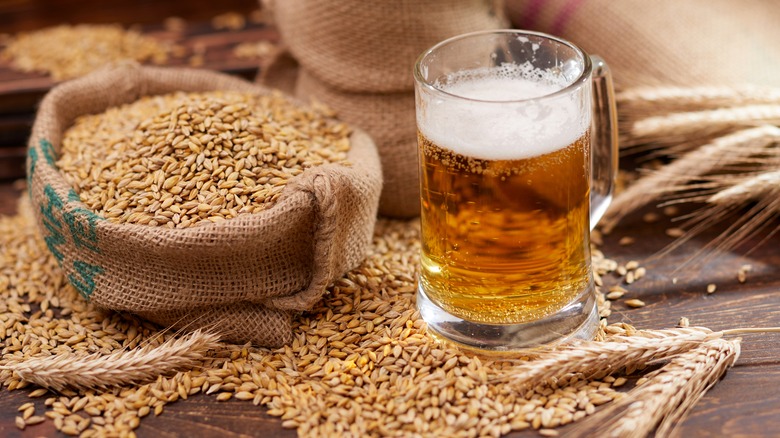Does Alcohol Make Arthritis Symptoms Worse?
As we age, the breaking down of the body becomes more of a concern. Arthritis is just one example of this degeneration. According to the Centers for Disease Control and Prevention (CDC), about 58 million people living in America have some form of arthritis; this amounts to almost one-quarter of American adults. Data collected by the CDC also found that half of the adults over the age of 65 have been diagnosed with arthritis, making it a fairly common experience particularly as people get older.
Osteoarthritis is the most prevalent form of arthritis. This kind of arthritis is a degenerative disease that breaks down the cartilage of the joints, leading to symptoms such as pain and swelling (per Mayo Clinic). Another common type is rheumatoid arthritis, where the immune system of the body attacks the lining of the joints and creates inflammation. While rheumatoid arthritis can emerge at any age, it most commonly starts when a person is 40 to 60 years old (per Versus Arthritis).
To alleviate arthritis symptoms, you may have to make a number of changes to your daily lifestyle. One change you may not expect involves modifying your alcohol intake.
Is alcohol helpful or harmful for arthritis symptoms?
The answer to this question may not be so clear. A 2014 study published in Arthritis & Rheumatology suggested that the risk of developing rheumatoid arthritis was reduced by 31% among women who consumed beer two to four times a week. This decreased risk in comparison to women who did not consume beer was found to be "modest" but statistically significant, suggesting that drinking alcohol in moderation may potentially reduce an individual's risk of developing rheumatoid arthritis.
However, the Arthritis Foundation warns how common it is for people to misinterpret what "drinking in moderation" entails. Moderate consumption of alcohol generally works out to be less than a drink per day for women and less than two per day for men, according to the CDC.
While there is a chance that drinking in moderation could help prevent rheumatoid arthritis in some women, drinking may do more harm than good if you already have the condition. Per VeryWell Health, research conducted on the benefits of drinking to reduce symptoms of rheumatoid arthritis is not conclusive and experts do not recommend consuming alcohol, as there are safer and healthier ways to alleviate painful symptoms.
How drinking alcohol may do more harm than good
Drinking alcohol in excess can disturb a person's life by affecting their overall health and increasing their risk of many diseases. For individuals who have been diagnosed with arthritis, VeryWell Health warns that alcohol can make their painful symptoms even worse and interfere with their prescribed medications. For example, non-steroidal anti-inflammatory drugs that are commonly used to treat arthritis symptoms interact negatively with alcohol, which can lead to stomach bleeding and ulcers (per Arthritis Foundation).
Alcohol can be especially detrimental to individuals who experience gout. Gout is another form of arthritis that develops when uric acid forms crystals in the joints; these crystals can also contribute to kidney stones and kidney failure (per WebMD). A 2014 study published in The American Journal of Medicine found evidence to support that higher consumption of alcohol came with an "increased risk of gout attacks" in those with arthritis.
For these reasons, the Arthritis Foundation recommends that those with the condition consult with their primary doctors about whether or not they should drink alcohol. They also suggest that even with a doctor's approval, alcohol intake should be limited to less than one serving per day and pursued conscientiously as one aspect of a wholesome lifestyle.



